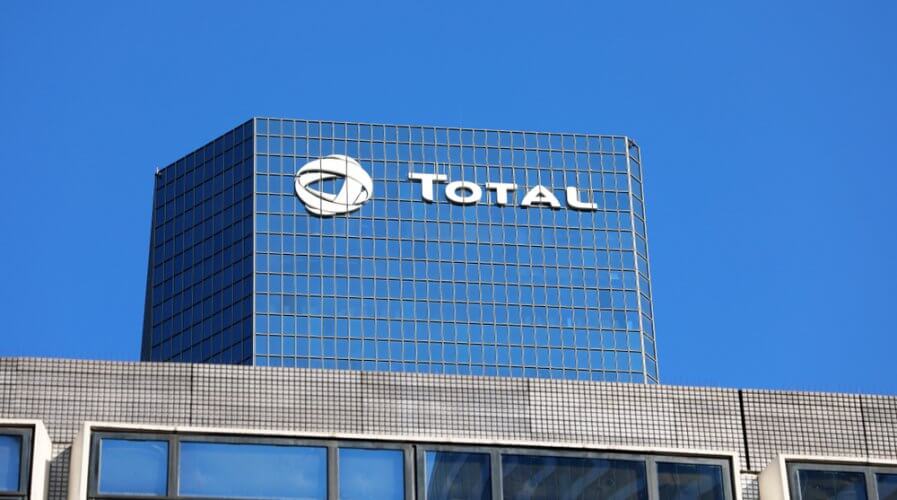
Do you know of Total Oil’s new startup challenge? Source: Shutterstock
Total Oil shows faith in the global startup ecosystem
COMPANIES across the world, for the past few years, have been supporting startups in large numbers. However, this year, many are scaling up their efforts and going beyond their home markets.
Take Total Oil’s Startupper of the Year Challenge. In 2015, the French Oil company inaugurated the first edition of the challenge in 34 countries in Africa — one of its most prominent markets.
Now, in 2018, the company has expanded that challenge to include startups in the Middle East, Europe, the Americas, and Asia, to a total of 55 countries.
Panels will pick the top three startup ideas plus one additional idea led by a woman from each country, and award them a total of US$25,000 (MYR 100,o00). That’s a total of US$1.375 million in cash prizes.
But the scale isn’t what Total Oil is excited about. It’s the variety of startup ideas and the impact they’ll make that excites the company — and of course, the technology.
“In any business today, technology is a critical component. You can’t take that away,” Total Oil Malaysia MD Sachin Singh told Tech Wire Asia in an exclusive interview.
“Businesses evolve with time, and to take any startup forward in today’s day and age, technology would be critical,” he added.
While the scale of the competition and the involvement of key business leaders from Total Oil’s global businesses suggests it is a critical project for the company, Singh insists that the company only intends to fuel the imagination of the youth.
Singh, who is well-versed with Malaysia’s startup ecosystem points out that the ease of doing business in the country is improving, that regulatory and government entities such as MaGIC and MDEC are nurturing new businesses and innovation, and that the younger people have a positive outlook to business and commerce.
As a result, the country is in the perfect position to fund, nurture, mentor, and support startups that have the potential to accelerate and catapult the nation to new highs.
“Malaysia has all the right ingredients to propel startups and help them contribute towards the GDP of the economy,” said Singh — who is also optimistic about other markets as well.
“When it comes to innovation and support for startups, it’s hard to say that one region is better than another. Instead, it’s important to evaluate each country for the policies they have in place,” explained Singh.
As a result, attempting to encourage and support innovation in the 37 African countries, 11 Middle Eastern and Asian countries, three European countries, and four countries from the Americas is important to Total Oil.
Now, it’s important to remember that almost all startup ideas of tomorrow leverage technology — and they should, given the multiplier effect it typically has on capital and resources.
However, it’s equally important to remember that technology is only the tool that “enables” the idea and is in no way a substitute for a great idea.
“One of our key requirements for the Startupper of the Year Challenge is that innovations have a social motive ‘as well’ — we don’t ask for them to leverage any particular technology as such because we recognize that technology is just a via media for today’s startups,” highlighted Singh.
According to the Malaysia MD, although pre-empting what ideas participants have submitted or what technologies they’re keen on using is difficult right now, emerging technologies such as artificial intelligence (AI) and virtual reality (VR) could play a big role in this edition of the challenge.
At the end of the day, it’s a great initiative and could foster quite a bit of innovation in the economy — and something that many other businesses, both, in the region and outside, are investing resources into.
Some, like Total Oil, are keen on a social motive, while others, like Accenture and Deloitte, are looking for certain kinds of startup superstars — in the fintech space or in the supply chain space, for example.
However, in the coming years, it seems that there will be more support for startups from enterprises, and the change in the mindset in boardrooms is likely to benefit all kinds of stakeholders.
READ MORE
- Ethical AI: The renewed importance of safeguarding data and customer privacy in Generative AI applications
- How Japan balances AI-driven opportunities with cybersecurity needs
- Deploying SASE: Benchmarking your approach
- Insurance everywhere all at once: the digital transformation of the APAC insurance industry
- Google parent Alphabet eyes HubSpot: A potential acquisition shaping the future of CRM






